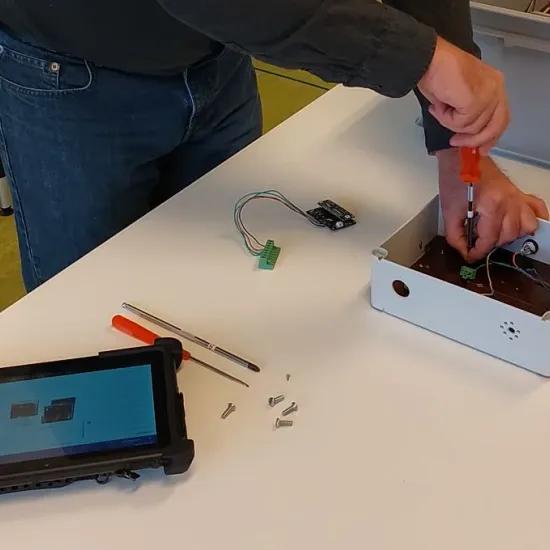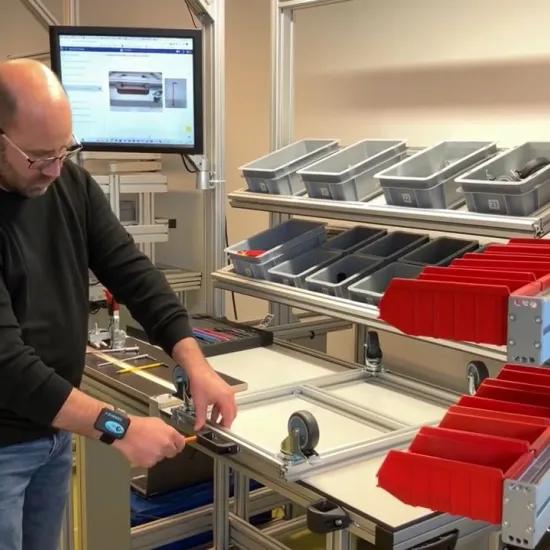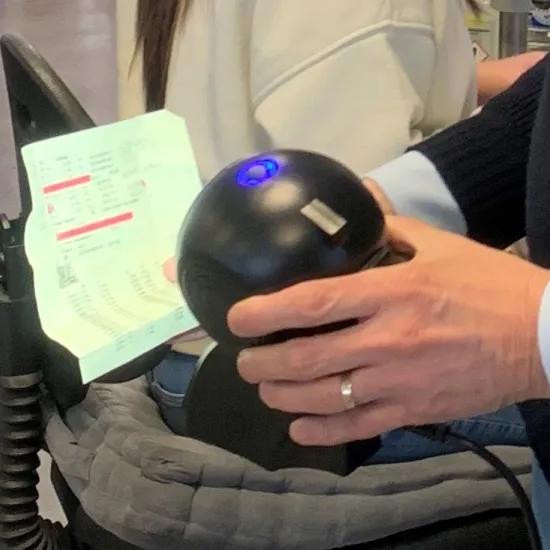Production of smaller series and custom products makes manufacturing more complex and that, in turn, adds complexity to not only the production process but also to the way that operators need to work. Today, a range of digital tools are available to help operators deal with their rapidly changing and ever broader range of tasks, with each tool having its own characteristics and potential uses.
Whereas Henry Ford, manufacturer of the Model T Ford and a pioneer in the use of production lines, focused on mass production and managed to produce cars efficiently in vast numbers, with each operator trained to perform one specific task in the most efficient way, the contrast with present-day production could not be greater. In recent years, manufacturing industry has clearly evolved from mass production to the production of smaller series of customer-specific products. In addition, customers want their products delivered as soon as possible and at the keenest possible price. This shift has made production much more complex. And that can be seen in all aspects of manufacturing, from planning and control, to production logistics and the production processes themselves.
For production operators, however, the changes involved are far from intuitive. Whereas in the past people had to make more-or-less the same item for years, they now have to keep switching between products. Managing this complexity is a major challenge. Fortunately, recent years have seen a tsunami of relevant new technologies (under the aegis of Industry 4.0), some of which focus on assisting the operators.
In contrast to cobots, industrial robots and mobile robots - which are mainly used to take over certain, mainly physical, tasks from the operator - there are now also many digital tools that can lighten the operator’s cognitive burden. The design principle behind these technologies and applications is simple - the right information, at the right time and in the right place.
Advantages of digital operator support
In mass production, it is usually enough for an operator to have had relevant on-the-job training and to have carefully read the production manual - which might be a technical dossier, CAD file or assembly instructions - for matters to proceed. For shorter series of customer-specific products, however, there needs to be more attention for ensuring that the product is assembled according to customer-specific requirements. This soon exceeds what can be reliably achieved by reading a traditional (often paper) production manual, especially when people’s attention is divided. In addition, each product requires specific instructions. Digital tools can offer a solution here. Digital support has a number of clear advantages for your operators:
- Up-to-date information: the operator always has access to the latest information - changes to instructions can be made at the last minute without disrupting production.
- Personalised information: by scanning, for example, both the order and the operator, personalised instructions can be provided that take the level of the operator into account.
- Diversified information: information can be provided in different forms, including photos, animations and videos.
- Interactive information: interaction can be enabled, allowing for feedback, working through checklists, etc.
- Linked information: because there is a direct link with the ERP/MES system, you can log critical information, such as whether or not to perform an important quality control, or record times (measuring production times).
- Mobile information: the information can be provided via various carriers, such as a smartglass, tablet, screen or AR/VR headset, which allows you to work when mobile - and even remotely.
It is not surprising, therefore, that digital operator support is increasingly finding its way onto the factory floor.
In our review article on Techniline, we zoom in on some interesting technologies and applications:
- Digital work instructions
- AR/VR instructions
- Remote operator support
Read the full Techniline article here or download the article here.
The 'Operator support' testing platform gets you started
Digital work instructions support your operators efficiently in performing their work. Sirris has a specific testing platform for this: we wish to use the Operator Support testing ground to demonstrate technologies and applications and to encourage and inspire companies by making generic demonstrators available to them. This is thanks to support provided by VLAIO under the Industrie 4.0 project.
(Image above: Remote operator support - source : Microsoft Dynamics)






